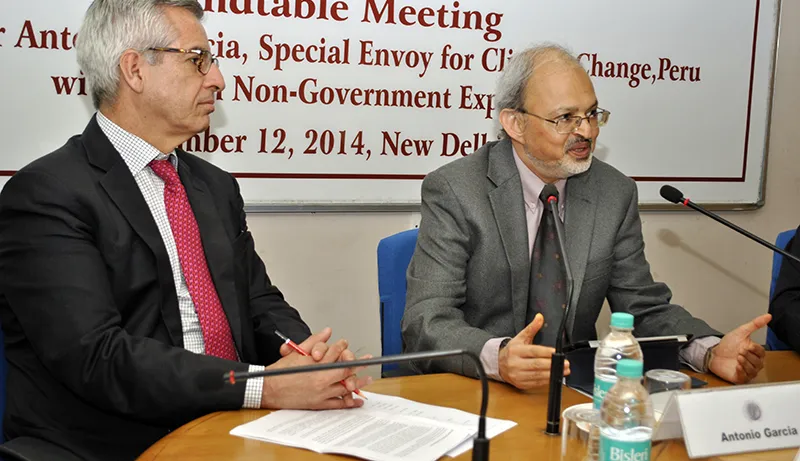-
CENTRES
Progammes & Centres
Location
Climate change experts at a roundtable at Observer Research Foundation emphasised the need for maintaining a pragmatic attitude at the 20th Conference of the Parties of the UN Framework Convention on Climate Change at Lima. According to them, the goal should be to set reasonable expectations that can be achieved in Paris.

Indian climate change experts at a roundtable discussion on "The road to Lima: Achieving the right mix of pragmatism and ambition" at Observer Research Foundation stressed the need for striking the correct balance between fairness and ambition at the 20th Conference of the Parties (COP 20) of the United Nations Framework Convention on Climate Change (UNFCCC) to be held at Lima in December this year.
The experts largely agreed that while a contribution is expected from everyone, differentiation remains a highly relevant and useful principle that should serve as the basis of discussions.
The participants at the roundtable, held on September 12, included among others Ambassador Antonio Garcia, Special Envoy for Climate Change of Peru. It was a preparatory session designed to gather information on Peruvian and Indian priorities in advance to the Lima conference.
During the lively debate, participants agreed that a fair and balanced context will continue to be essential for going forward. Several participants referred to the ’equity question’ as the ’elephant in the room’ during previous negotiations, and argued for a more operative version of equity principle to be incorporated into the upcoming COP 20. Many participants also touched on the equity versus ambition conundrum.
Experts spent a fair amount of time discussing the question of technology in the upcoming session. While some felt that technology transfer and IPRs were a central factor in whether or not developing countries would be willing to take on ambitious mitigation targets, others felt that while important an IPR deal would not be the most important technology issue on the agenda. Some experts stated that the focus on IPR has had an unfortunate tendency to narrow what should be a broader discussion on technology in general.
The participants said that issues including capability building; creation of a pipeline to supply the technology needs of developing countries in the future; and ways to promote collaboration and innovation on ’game-changing’ technologies that can shift the curve, should take center stage at COP 20. Most experts agreed that talks on technology need to allow for sufficient flexibility and contextual priorities.
Participants agreed that one of the most important tasks laid out for the Lima session will be the drafting of a clear and coherent text incorporating the diverse views of the participants that can be used as a roadmap for the 2015 negotiations. In fact, ’draft texts falling from the sky’ was cited as a factor that hampered trust between developing and developed country negotiators during major climate change negotiations in the recent past.
Participants identified trust-building as one of the key goals of COP20. Many believe that if an atmosphere of transparency and confidence building can be maintained during this meeting, the stage will be set for a more productive negotiation in Paris in 2015.
Most experts emphasised the need for maintaining a pragmatic attitude at Lima, and to avoid the temptation to overreach. The goal should be to set reasonable expectations that can be achieved in Paris. The key is for each country to draw on a methodology that splits the mitigation and adaptation burden based on national capability.
Experts argued that the focus on a ’treaty’ often distracts from the core issue: namely, what is each country willing to do in the areas of mitigation, finance, technology and adaptation on a voluntary basis? Above all, they expressed the feeling that time is of the essence. The equally crucial pre-2020 narrative is going to unfold over the course of the next meetings and the time has come to move beyond discussions toward implementation.
(This report is prepared by Guru Amrit Khalsa, Research Intern, Observer Research Foundation, Delhi)
The views expressed above belong to the author(s). ORF research and analyses now available on Telegram! Click here to access our curated content — blogs, longforms and interviews.